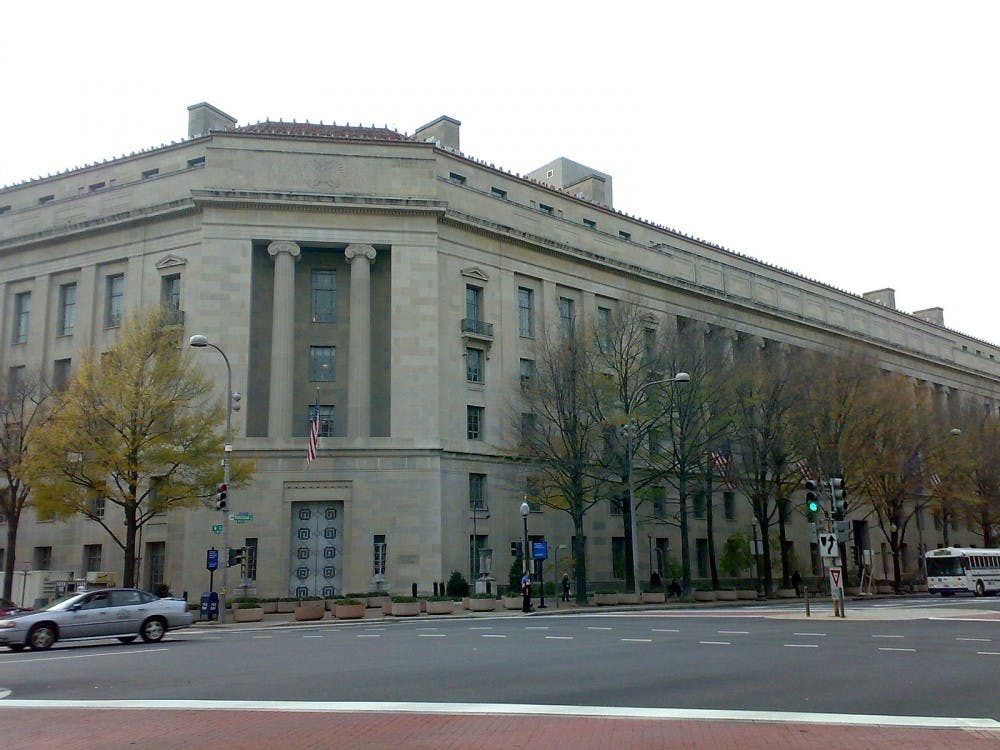One hundred and ninety eight Princeton faculty demanded a stop to the United States Department of Justice’s (DOJ) China Initiative in an open letter, sent on Oct. 18 to U.S. Attorney General Merrick Garland. They claim that the policy disproportionately targets researchers of Asian and Chinese descent, creating a hostile environment that hampers the recruitment of students and postdoctoral scholars.
The China Initiative was formed under the Trump Administration in order to counter the Chinese government’s stealing of American intellectual property. It specifically targets those at U.S. universities who are believed to be engaging in espionage for the Chinese government. The China Initiative website lists successful cases of jurisdiction under the initiative, starting in April 2018 and most recently in May 2021.
But according to politics professor Rory Truex ’07, one of the letter’s original drafters, the outcomes of these investigations have been limited.
“As far as 2018, when this initiative was announced ... the big narrative at the time was China's using so-called non-traditional intelligence collectors, i.e. students, postdocs, faculty members, to steal technology from the United States,” Truex said in an interview with The Daily Princetonian.
“The FBI has had over two years now to prove that this is happening in a systematic way, and they have failed to do so,” he said.
The letter claims that the majority of offenses under the China Initiative do not pertain to espionage or intellectual property theft. Rather, most prosecutions are on account of other misconduct, like failure to disclose employee appointments or funding from other countries, which are not mentioned as the Initiative’s primary goals.
The letter describes a number of unsuccessfully litigated cases from the China Initiative that involved racial profiling, such as that of Anming Hu, a professor at University of Tennessee Knoxville, who was acquitted due to a lack of evidence tying him to the Chinese government.
The letter expressed that these unfounded accusations promote the singling out of Asian researchers, creating an academic environment rife with fear and mistrust. They assert prosecutions based on the China Initiative may damage researchers’ careers or personal lives.
The Department of Justice maintains that they are cognizant of these claims, and investigations are conducted on the basis of the individual’s actions, not their race or ethnicity, as explained on NPR in November 2021.
But Professor Yiguang Ju of the Mechanical and Aerospace Engineering Department, another of the letter’s original drafters, expressed feeling monitored on the basis of his Chinese ethnicity. He said he received three calls from the University Office of the General Counsel (OGC) regarding alleged ties with the Chinese government.
“Personally I do not have any kind of position in China, I have been declined such things,” he said. “But even for me, the University OGC came to talk … with me to ask to look at my CV … because I came from China.”
The University claims it has never arranged a meeting with any faculty on the basis of their Chinese ethnicity.

“When OGC becomes involved in internal reviews concerning foreign funding and engagements, it is typically based on new information that a faculty member provides (e.g., in connection with the University’s conflict-of-interest disclosure process), an external complaint the University is obligated to investigate, or a government inquiry or subpoena,” University Spokesperson Ben Chang wrote in an email to the ‘Prince.’
In an interview with the ‘Prince,’ Ju also claimed that the OGC questioned the number of “Chinese names” listed as collaborators on his curriculum vitae.
“That's ridiculous,” he said. “I do have Chinese names and ... collaboration with others, because fundamental research is open science. It’s a tradition to collaborate with others.”
The University denied this assertion.
“No OGC attorney would ever ask a faculty member any question based on the apparent national or ethnic origin of the names of the authors on a paper,” Chang wrote.
He added, “The OGC has discussed the nature and scope of certain Chinese research collaborations with a number of faculty members; some of the professors have been Chinese or Chinese-American, and others have not.”
Ju is also a member of the Asian American Academy of Science and Engineering (AAASE) board of directors. It aims to promote diversity, equity, and inclusion, and empower Asian-identifying scientists in the academic space.
Those faculty who signed the letter worry that discouragement from collaboration severely limits the capacity for research in the United States. Their biggest concern is that hostility or suspicion may deter “the best” Chinese students and postdocs from entering, and remaining in, the United States.
“Once upon a time, relationships with China were viewed as a good thing, because it was important for us to be learning from China and engaging with Chinese scientists,” Truex said. “Now all of a sudden, those relationships are viewed as a liability.”
The University faculty’s letter supports similar concerns posed by faculty at Stanford University, The University of California, Berkeley, and Temple University.
Izzy Jacobson is a news and features contributor for the 'Prince.' She can be reached at ijacobson@princeton.edu and @izzyjacobsonn on Instagram.








